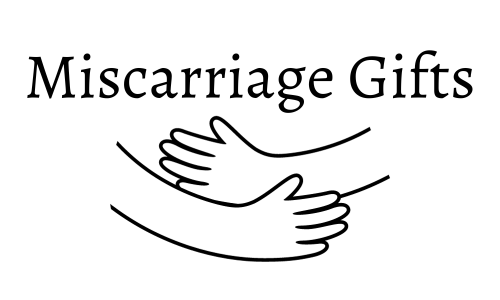After a miscarriage, the emotional fallout can be overwhelming. Grief, sadness, and anger are natural responses to such a profound loss. However, one emotion that often creeps in and lingers is guilt. Many parents, particularly mothers, find themselves trapped in a cycle of self-blame, wondering if they could have done something differently to prevent the miscarriage. This guilt, while common, can be incredibly damaging and can delay the healing process. One of the most important steps in recovering from a miscarriage is self-forgiveness.
The Importance of Self-Forgiveness
Miscarriage is a traumatic event that affects not only the body but also the mind and spirit. Forgiving oneself is not an admission of fault—because, in nearly all cases, miscarriage is not the mother's or the couple's fault—but rather an essential part of emotional healing. Self-forgiveness allows you to release the heavy burden of guilt, enabling you to begin the process of moving forward.
Most miscarriages happen due to factors entirely outside of anyone’s control, such as genetic abnormalities or medical complications that could not have been predicted or prevented. Blaming yourself only prolongs the emotional suffering. Letting go of the "what-ifs" and accepting that the miscarriage was beyond your control is crucial for finding peace and starting the healing process.
Understanding the Causes of Miscarriage: It Was Never Your Fault
To fully embrace self-forgiveness, it helps to understand the medical realities of miscarriage. Research shows that between 10-20% of known pregnancies end in miscarriage, and the actual number is likely higher due to early losses that occur before a woman knows she is pregnant. The majority of miscarriages are caused by chromosomal abnormalities that prevent the embryo from developing properly. In other cases, underlying health conditions, such as thyroid disorders or clotting issues, may contribute, but these are not things most people are even aware of prior to their pregnancy loss.
The truth is that most miscarriages are completely unpreventable. There is nothing that could have been done to change the outcome, and recognizing this fact is key to letting go of self-blame. It is a natural instinct to search for answers after a traumatic event, but in the case of miscarriage, those answers often lie in biological factors outside of your control.
Breaking Free from the Cycle of Guilt
Guilt after a miscarriage can manifest in many ways. You might wonder if you worked too hard, exercised too much, ate the wrong foods, or didn’t take enough prenatal vitamins. You might question if you missed a sign or symptom that could have indicated something was wrong earlier. These thoughts can be overwhelming and painful. However, continuing to ask these questions only deepens the emotional wound.
It is essential to acknowledge that these feelings of guilt are based on an emotional response to grief, not on any actual failing. By forgiving yourself, you are not only offering yourself compassion but also creating space to process the loss in a healthier way. Remember, self-forgiveness is about breaking free from the cycle of guilt and allowing yourself to grieve without the added burden of blame.
How to Practice Self-Forgiveness
Self-forgiveness is a process that takes time. It is not as simple as deciding one day to stop feeling guilty. It requires self-compassion, understanding, and support. Here are some steps that may help you on your journey toward self-forgiveness:
The first step in self-forgiveness is acknowledging the guilt you feel. Ignoring or suppressing your emotions will only delay healing. Allow yourself to feel the sadness, anger, and guilt, but also recognize that these emotions are part of the grieving process, not an indication of fault.
Practice Self-Compassion
Be kind to yourself. Grieving a miscarriage is already emotionally and physically exhausting, and adding guilt to the mix only makes it harder. Treat yourself with the same kindness you would offer a friend or loved one in your position. Allow yourself time to heal without judgment.
Seek Support
Whether through counseling, support groups, or talking with friends and family, sharing your feelings with others can help alleviate the emotional weight of guilt. Connecting with other parents who have experienced miscarriage can provide reassurance that your feelings are valid but also that self-blame is misplaced.
Let Go of Expectations
Pregnancy, like life, is unpredictable, and trying to control every outcome is impossible. Let go of the notion that you had to do everything perfectly to have a healthy pregnancy. Miscarriage does not mean you failed; it is a tragic, uncontrollable event that happens to many parents through no fault of their own.
Give Yourself Permission to Heal
Healing from a miscarriage is not just about moving on from the physical aspects of the loss. It’s about giving yourself permission to let go of guilt, to grieve in your own way, and to understand that forgiveness is a gift you give yourself. Healing can only begin when you accept that you did nothing wrong and that the miscarriage was not your fault.
Moving Forward Without Guilt
Self-forgiveness is not about forgetting the loss or minimizing the pain. It’s about understanding that holding onto guilt only prolongs suffering. By forgiving yourself, you are honoring your emotional well-being and opening the door to healing. Miscarriage is an incredibly painful experience, and the emotional journey afterward can be long and challenging. But with self-forgiveness, you can begin to move forward in a way that allows space for both grief and healing.
As you navigate this journey, remember that there is no timeline for recovery. It’s okay to take your time and to feel however you feel. Self-forgiveness does not happen overnight, but it is a vital part of finding peace after such a heartbreaking loss.
